Jushiro Kobayashi
Nacimiento : , Yokosuka, Kanagawa Prefecture, Japan
Muerte : 1996-06-06

A disgraced yakuza member, framed for the murder of his boss, emerges from prison eight years later with revenge on his mind.
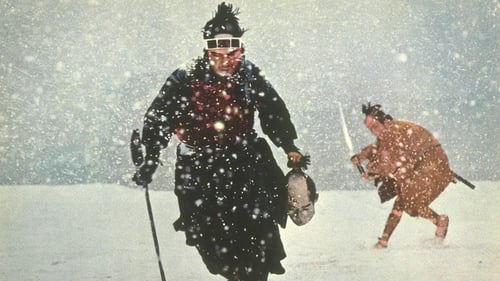
This anthology film consists of nine incidents in the late 19th and early 20th centuries when assassins changed the course of Japanese history.
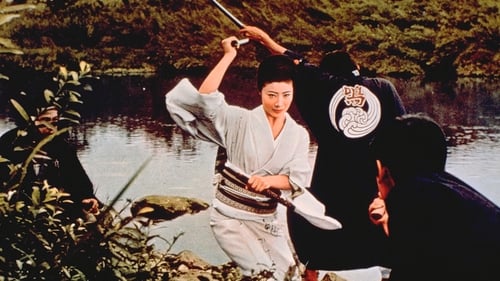
Oryu es acogido por un ex jefe yakyuza. Ella promete ocultar su fondo yakuza y el trabajo como una mujer normal. Mientras tanto, el rebelde trabajadores contra nueva ley tributaria, lo que obliga a los operadores a llevar en una familia yakuza para resolver el asunto.
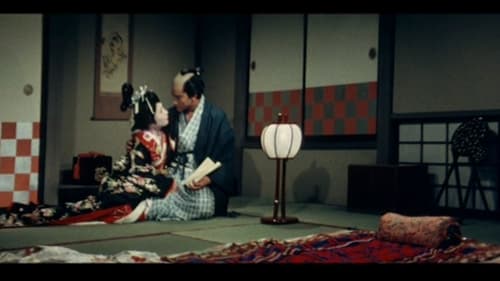
Made after Takechi had won an obscenity trial over Black Snow (1965), the film has been called "Takechi's personal message to Eirin."
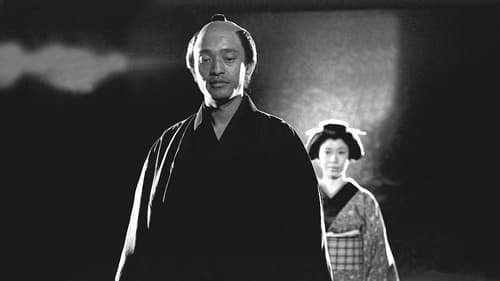
Writer Jippensha Ikku hears Tsutaya Juzaburo, a wholesaler of picture books, mutter on his deathbed, "Where has Sharaku gone?" He begins to figure out the true identity of Sharaku, who disappeared after about 150 portraits of actors he created came out.
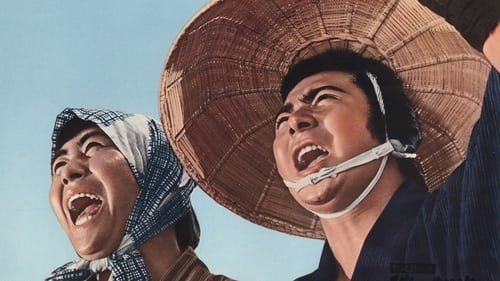
The second film in the "Suruga yukyoden" series, in which Shintaro Katsu plays Jirocho Shimizu. The film features Omasa, Komasa, Ocho, who will become Jirocho's wife, as well as other members of his future family. There is a particularly great swordfight near the end where Katsu and cronies attack the rival villainous yakuza clan to rescue their ailing, elderly boss. The action choreography, cinematography and editing of this sequence is quite brilliant, treading a difficult tightrope act between genuinely goofy antics and exhilirating, bloody violence.
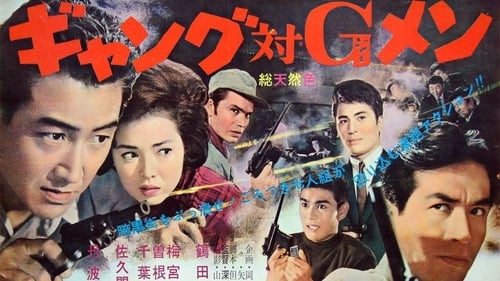
Two rival gangs of gangsters clash for dominance of a neighborhood.
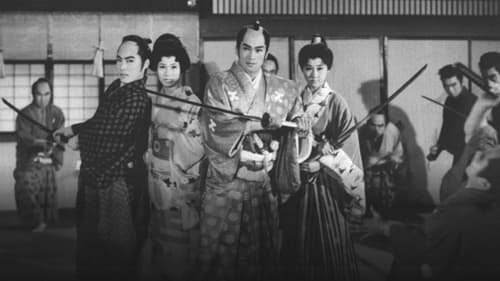
Esta es la segunda película de la popular serie en blanco y negro sobre el maestro espadachín, Yagyu Jubei. Cuando el clan Yagyu es víctima de los espías Kasumi rivales, Yagyu Jubei es llamado a la acción para protegerlos. Pero al cumplir con su deber, se convierte en el objetivo de aquellos que desean destruir su clan.
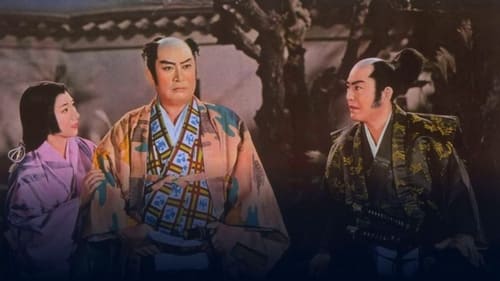
Shigeshiro
A Tokugawa Daimyo rebels against an his lord after the battle of Sekigahara. Samurai Matabei, a famous spear fighter and warrior, is a vassal of lord Honjo. One of Honjo's most trusted under-lords is Sanzaemon. He has designs on Matabei's fief, and he plots to kill Matabei. He finally convinces Lord Honjo of Matabei's guilt. Now Matabei must fight to survive.

Japanese film.

Kondo Isami
Japanese comedy film.

Japanese war film.
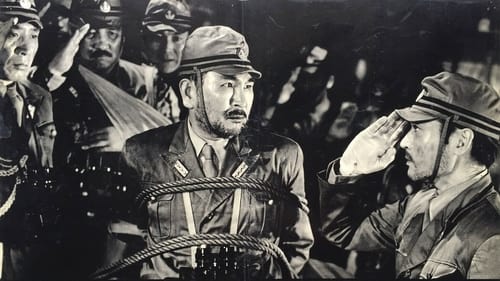
Vice-Admiral Yamashita
In 1941, overpopulated Japan faces an economic boycott and its armed forces push further to the south. And despite negotiations between Japan and the U. S. A. war is declared with the attack on Pearl Harbour. Victories follow for Japan on land and sea and her forces push forward to the borders of India. But gradually the tide turns in favour of the Allies and after the atom bombings of Hiroshima and Nagasaki, Japan is compelled to accept the Potsdam Declaration and by the order of the Emperor agrees to unconditional surrender. Under the supervision of the occupation forces the International Military Tribunal opens in Tokyo to try the Japanese war leaders. Established in the cause of justice, and to prevent future aggressive wars the trials drag on for two and a half years. And on December 23, 1948, General Tojo and six other war leaders mount the thirteen steps to the gallows at Tokyo's Sugamo prison.

A young doctor discovers that the city hall of records has a record of his death. He and some friends try to seek out the person who reported it, and uncover a shady group of criminals with a sinister plot.

Sanzo
In a warehouse area at night, a drunk chief engineer is stabbed to death by someone who whistles. After the break of dawn, two seamen join the crew of a rusty cargo ship Kaiyo Maru. One is a troublemaker with bad attitudes, Senkichi Nomura, who pursues an enemy in order to take revenge for his father's death. The other is Keizo Sasaki, a buff, eagle-eyed man on board for a certain mission.

Japanese drama film.

Eizô Oda
A romantic adventure tale about a young guy working on a whale-hunting vessel and his love for a childhood sweetheart.
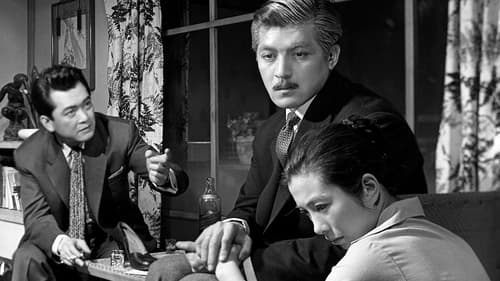
Detective Tanabe
Ise, a successful entrepreneur, accidentally murders his lunatic wife after he is spotted having an affair with his secretary, Harumi. In his attempt to perfect his crime, he drives to a remote quarry to bury his wife’s body, but along the way, he finds another dead body in the back of his car! Given no choice, Ise dumps both bodies. Meanwhile, Yoshie begins her search for her missing brother, Yoshihiko. After surprising twists and turns, Ise faces his fate.

Japanese drama film.

An early fantasy film starring Tomisaburô Wakayama.

Japanese film.

Japanese film.

Police detective Heiji is assigned to catch the masked Maboroshi gang of robbers who have terrorized all of Edo leaving few clues as to who their leader is.

Seinosuke Tsugawa
It is a historical drama that follows Katsu Kaishu's efforts to surrender Edo Castle bloodlessly in the first year of the Meiji period.

Engine Depot Manager
Jeom-yong Kim (Pyeong Wang) is a train conductor who wants to drive a military train. Won-jin (Eun-gi Dog) is his best friend and both live together. When a spy for the resistance approaches Won-jin for information on the Japanese military train in exchange for money, he puts the life of his best friend in danger.

The sequel to the 1935 film Great Bodhisattva Pass

Period film from 1934.

The first half of the movie depicts a man's jealousy of his best friend and the woman he love. The second part depicts a hero who is ready to put the past behind him and risk his life for his friend.

A mournful masterpiece by Kinugasa Teinosuke


Yasube Horibe
This 1932 adaptation is the earliest sound version of the ever-popular and much-filmed Chushingura story of the loyal 47 retainers who avenged their feudal lord after he was obliged to commit hara-kiri due to the machinations of a villainous courtier. As the first sound version of the classic narrative, the film was something of an event, and employed a stellar cast, who give a roster of memorable performances. Director Teinosuke Kinugasa was primarily a specialist in jidai-geki (period films), such as the internationally celebrated Gate of Hell (Jigokumon, 1953), and although he is now most famous as the maker of the avant-garde silent films A Page of Madness (Kurutta ichipeji, 1926) and Crossroads (Jujiro, 1928), Chushingura is in fact more typical of his output than those experimental works. The film ranked third in that year’s Kinema Junpo critics’ poll, and Joseph Anderson and Donald Richie noted that 'not only the sound but the quick cutting was admired by many critics.

















